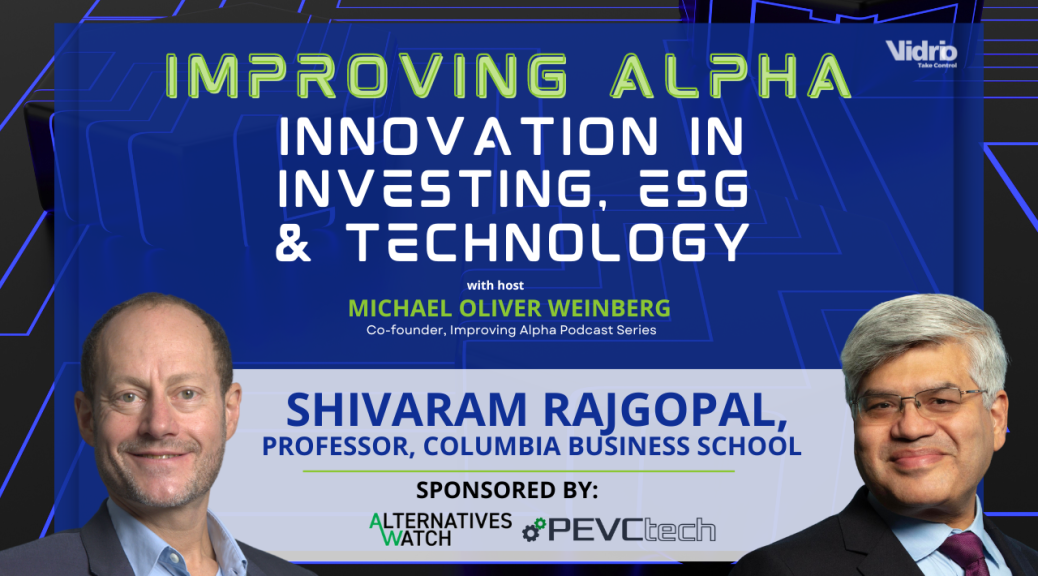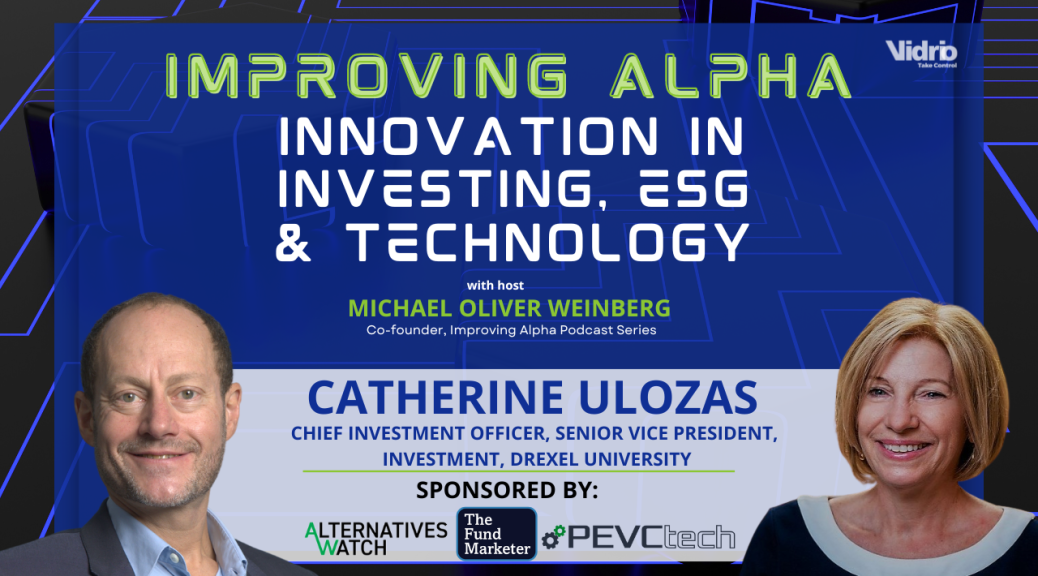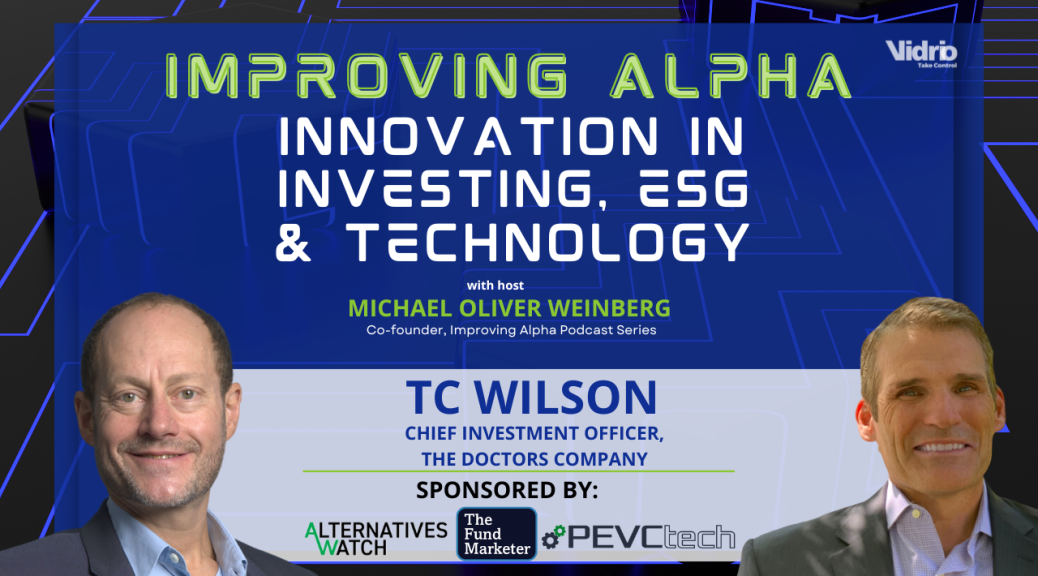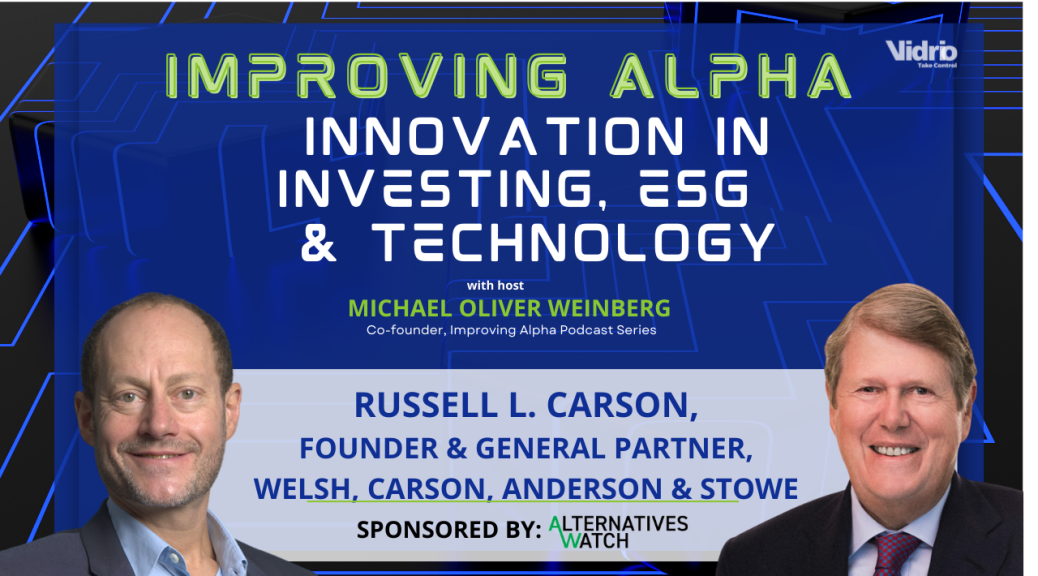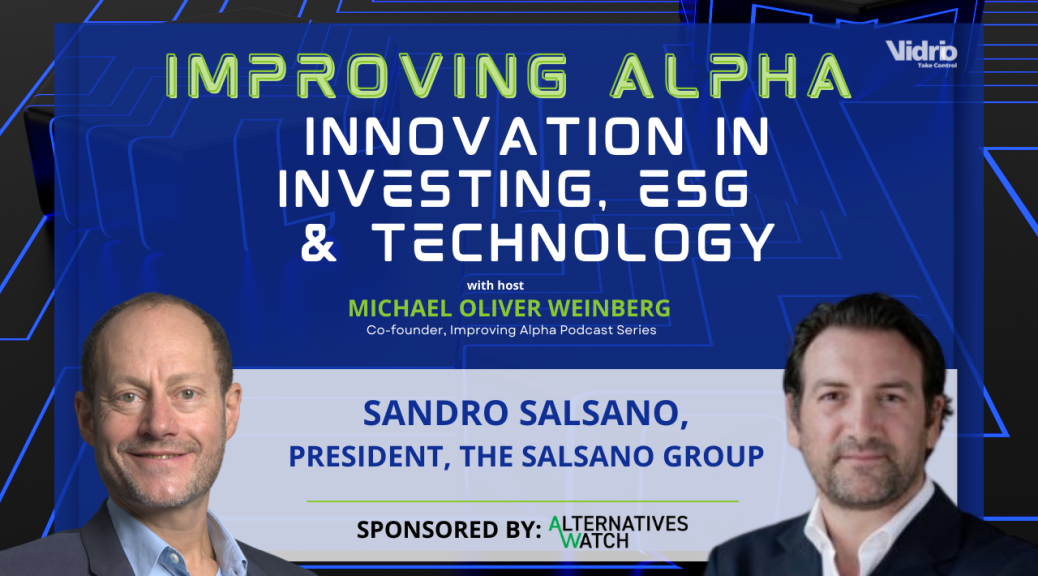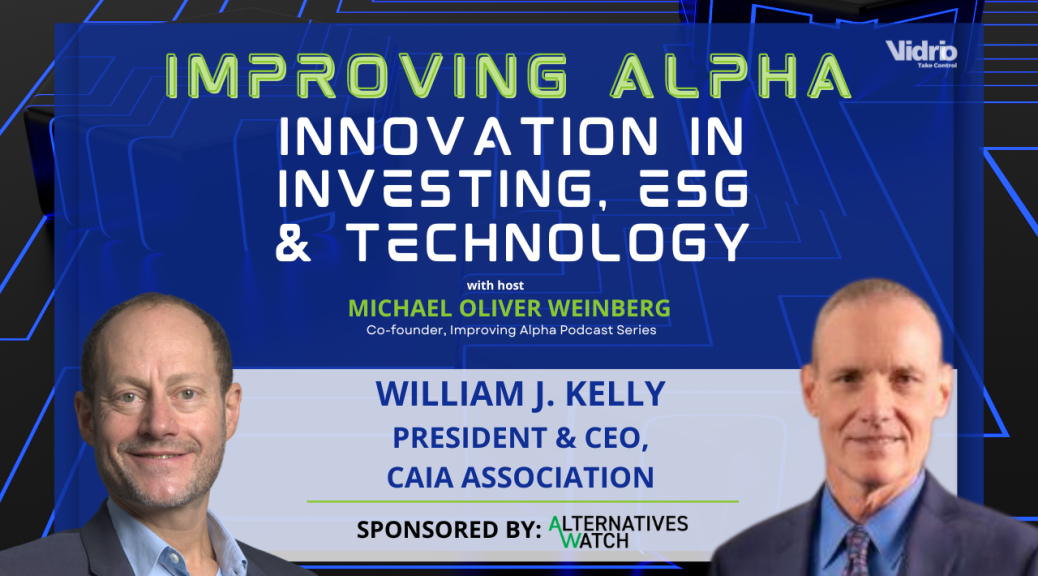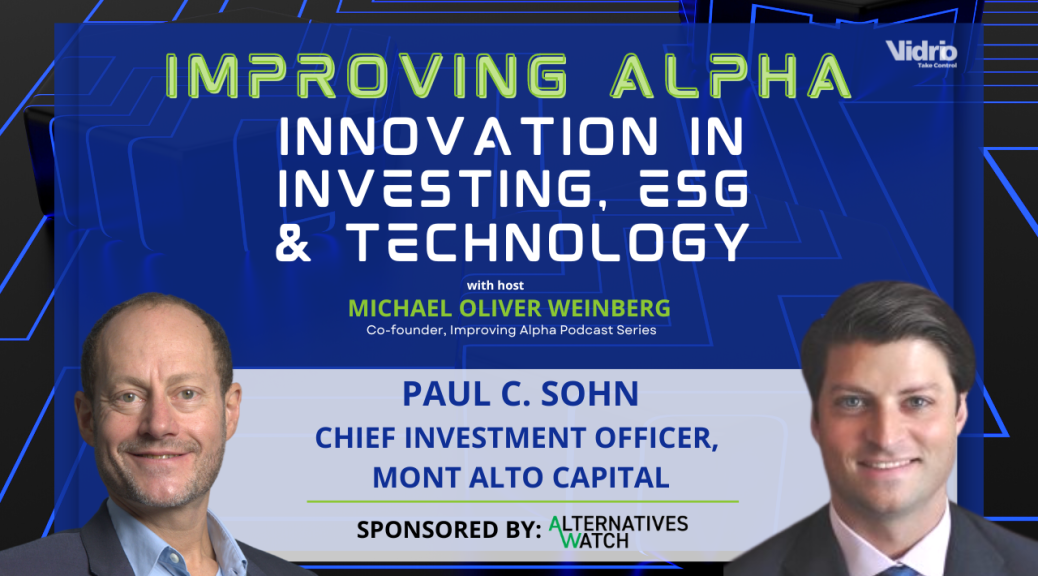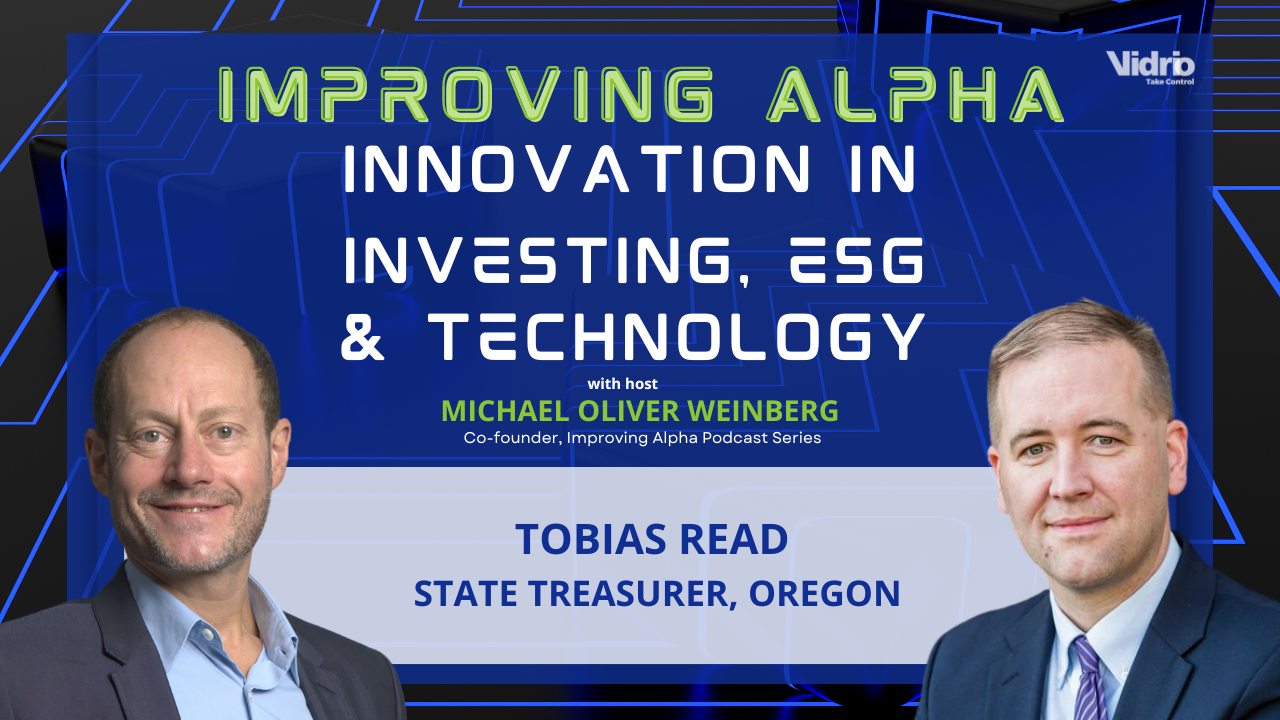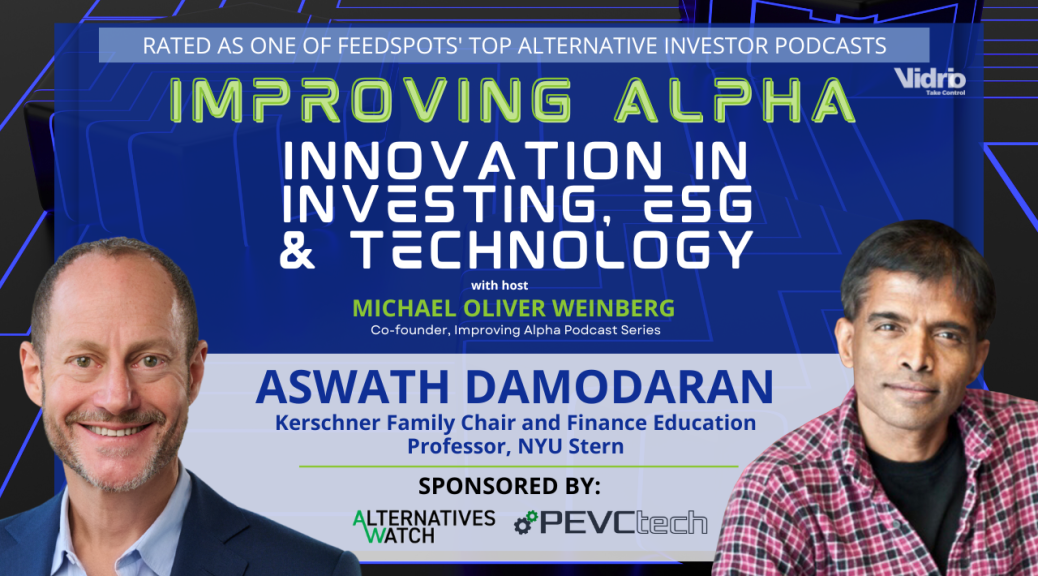
Improving Alpha: Aswath Damodaran on applying a dabbler perspective to AI, ESG, and Wall Street.
Podcast: Play in new window | Download | Embed
Can a generalist provide a much broader view of the institutional markets and uncover things that so-called experts miss? Can the sins of Wall Street be traced back to a genuine lack of perspective and ineffective communication when a crisis arises? These are some of the questions and answers that we’ll uncover in our latest episode of the Improving Alpha podcast.
For this episode, we welcome Aswath Damodaran, Kerschner Family Chair and Finance Education Professor, NYU Stern. Aswath will take the audience through his perspectives on how to address some of the challenges posed by AI, including the Damdaran Bot, the ESG scam, the Mag 7, and more.
Additional highlights include:
- Why those in active investing shouldn’t be concerned about the introduction of AI, and the threat that it could take this industry to the cleaners.
- The challenge of ESG and why those who write about it may be hiding an agenda to make it look better than what it actually is today.
- So what if there’s an AI bubble? Isn’t overconfidence and a high degree of optimism going to be corrected by the markets?
- Crypto currencies – are they a currency or collectible, and what perspectives should you take on them for 2026.
- The gaming of quarterly reporting and potential solutions for allocators paying attention to these reports.
- And more.
Connect with Michael Oliver Weinberg:
Connect with Aswath Damodaran:
- LinkedIn: Aswath Damodaran
- Website: Aswath Damodaran
- Blog: Musings on Markets
- YouTube: Aswath Damodaran
About Our Guest:
Aswath Damodaran holds the Kerschner Family Chair in Finance Education and is Professor of Finance at New York University Stern School of Business. Before coming to Stern, he also lectured in Finance at the University of California, Berkeley.
Professor Damodaran received a B.A. in Accounting from Madras University and a postgraduate diploma in Management from the Indian Institute of Management. He earned an M.B.A. (1981) and then Ph.D. (1985), both in Finance, from the University of California, Los Angeles.
Professor Damodaran’s contributions to the field of Finance have been recognized many times over. He has been the recipient of Giblin, Glucksman, and Heyman Fellowships, a David Margolis Teaching Excellence Fellowship, and the Richard L. Rosenthal Award for Innovation in Investment Management and Corporate Finance.
His skill and enthusiasm in the classroom garnered him the Schools of Business Excellence in Teaching Award in 1988, and the Distinguished Teaching award from NYU in 1990. His student accolades are no less impressive: he has been voted “Professor of the Year” by the graduating M.B.A. class nine times during his career at NYU.
In addition to myriad publications in academic journals, Professor Damodaran is the author of several highly-regarded and widely-used academic texts on Valuation, Corporate Finance, and Investment Management.
Professor Damodaran currently teaches Corporate Finance and Valuation to the MBAs, and his interests lie in disentangling value drivers and understanding market pricing and behavior.
The information covered and posted represents the views and opinions of the guest and does not necessarily represent the views or opinions of Vidrio Financial, and/or our host, Michael Oliver Weinberg. The Content has been made available for informational and educational purposes only. The Content is not intended to be a substitute for professional investing advice. Always seek the advice of your financial advisor or other qualified financial service provider with any questions you may have regarding your investment planning.
The release date may not correspond to the recording date.
